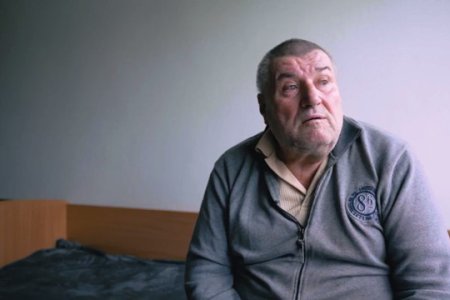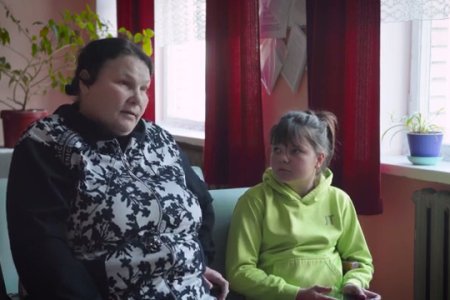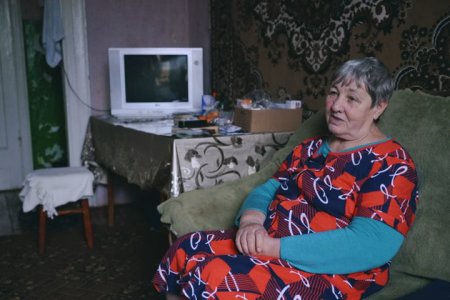How did the events of 2014 develop in your region?
In 2014, the railway station was badly damaged. The separatists were coming from the direction of Kreminna and fired heavily at the micro-district called Lineva. It is the Kreminna entry, the private sector. The houses there were destroyed. The station was also ruined, but the railway line was not severely damaged. People died. Then the micro-district was rebuilt, and people’s houses were restored. The station has also been fixed. And these bastards were kicked out as far as Lysychansk. I don’t remember what the village was called. They partly lived in a children’s recreation camp near the Borovaya River, near us. They were kicked out of there as well.
There were many mines left in the forest. We have people going to the woods for mushrooms: near the village of Voievodivka, between Rubizhne and Severodonetsk, we have two villages — Voievodivka and Shchedrishchevo. Two men from Voievodivka were picking mushrooms and died. They were blown by the tripwire. They went into the thicket, and everything happened there. People who had cows took them out to pasture. They also told the story of how a shepherd found a tripwire. It’s good that no one was blown up there. He called the Ministry of Emergency Situations, and they came and cleaned everything. And how many shells and cartridges were left. All the things that were found along the Seversky Donets River! We had a bridge from Rubizhne to the city of Novodruzhkivka; behind it and near it, so many shells were found that it was impossible to count.
How did the 2022 war burst into your life?
On the 24th, early morning, at about 4:30, my neighbor and I were alone in a ward. I was in the hospital with Omicron, and I had not yet completed the entire course of treatment; only seven days had passed, and the course was ten. In the morning, something exploded from the direction of the village of Vavarivka. It is in the northern part of the city. The neighbor said: “Ira, this is probably at our factory, the training ground.” I answered: “Where are the factory and the hospital? Nothing is ever heard here. You remember, at night, something heavy flew and buzzed.” — Her: “I thought it was a train.” — “There are no trains near the hospital. It was something heavy flying.” And at 6:30, a nurse came and said: “All who can walk are discharged after breakfast.”
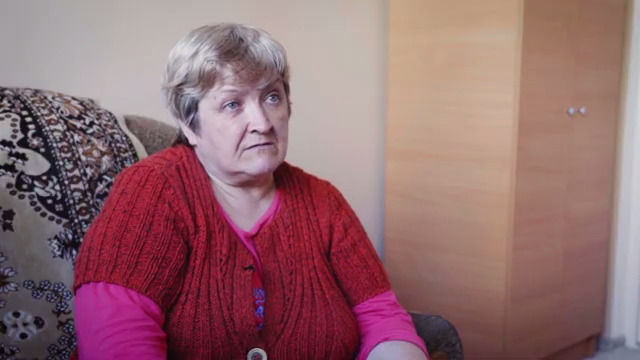
Two water pumps power our city. The Borovenka pumping station powered our micro-district and the Zorya plant, but it was probably de-energized, and the pumps stopped working. So on the third day of the war, there was no electricity, gas, or water. We were saved because some neighbors had wells in their yards. We collected water there. When my house became uninhabitable, we lived in the house of friends who had already left with the whole family. They are a large family and religious. I barely got through to Tetiana [the neighbor], and she said: “Live as long as you need, take what you want, use everything. We don’t know when we’ll be back home.”
Have you witnessed the destruction of civilian facilities?
We have a shell that fell between the two yards. Then my son and I looked around the neighborhood at the destruction. All nearby houses were severely damaged after the first explosion. One home across the road from us (three shells flew into it in a day or two) burned down, and nothing was left. Five families lived there, and now there is nothing. But people, thank God, managed to escape these houses. Now I don’t even know where they are. I only know that the former school director had a place diagonally across the street from us, and it burned down in 40 minutes. The next apartment was also hit, and a woman with her husband barely escaped. Their son lived in a separate house. But that house also burned down. It was on my street, just a little further behind the school.
Before our eyes, they hit a neighbor’s house — it burned to the ground. Nothing left. Other neighbors (a house with four apartments) also burned down in 40 minutes.
When the cluster shells fell, all the wires were torn. Just pieces of wires laid on the ground, half a meter or more long. Sometimes they bombed the city center. I haven’t been hit yet, but I’ve seen everything. The enterprise where my son Danylo worked was on fire: he worked for the RKTK, the Rubizhsky Cardboard and Packaging Plant.
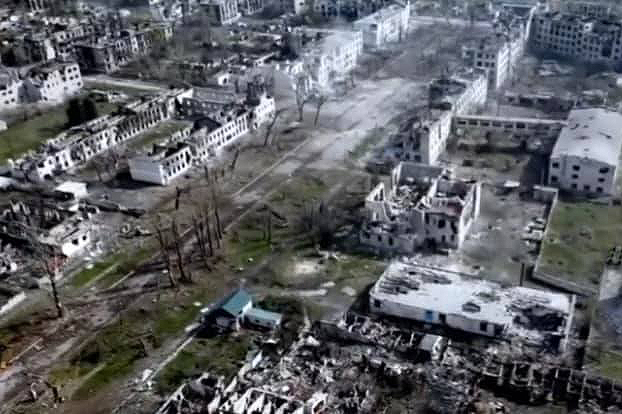
It was constantly on fire. Warehouses and industrial premises burned. It’s terrible what happened. We could see it even from our micro-district, not only nearby.
Where did you hide during the shelling?
It was already impossible to live in my house. When we lived with friends, they did not have a basement. We just stood between two barns. And it was -17 Celcius, sometimes -20. You get dressed and stand, and you also cover yourself with a blanket and look at the sky to see from where it flies. We stayed in the house when they didn’t shoot hard, and the building jumped from vibration when they hit harder. We stood between the cowshed and the chicken coop. Fortunately, the house was not hit while we were there, but behind us, the neighboring street was constantly on fire. Later, when the shelling subsided, we went to look. We thought there might be someone who needed help. Some neighbors were no longer there. Those with their transport left, and only those who had nothing stayed.
Have you had difficulty accessing food?
Sometimes they brought bread from Severodonetsk. There was a bakery at the Azot enterprise. They still had electricity. All ovens in our bakeries were electric, and you can’t bake bread without electricity. From there, sometimes, a car came under shelling. The road was constantly bombarded. Then people who took it upon themselves to help their neighbors received products: if there was bread, it used to be divided into four parts.
It was a small loaf of bread and a quarter for each family.
Volunteers brought canned goods. We shared everything. There was a little for everyone.
Was it possible to receive medical services during the hostilities?
One woman told me she discovered by chance that only one or two doctors were left in the city. And a few nurses who didn’t abandon people. And everyone else ran away. And the mayor of the city hid in a village north of Varvarovka. He had lists of former ATO [Anti-Terrorist Operation] soldiers and those who serve in the Armed Forces of Ukraine. Later my son told me: “Mom, it’s good that you left. Otherwise, you would have been killed there along with everyone else.”
How was your evacuation from the city?
I was very ill before leaving; I almost had a heart attack. I was scared because I could not get through to my daughter — there was no connection. She has two children. There was no information anywhere. Many people who did not have their transport did not know where to go. The railroad didn’t work; nothing worked. On the second day of hostilities, even buses stopped running around the city. There was nothing. If you had to get to the city center, withdraw money from an ATM, and buy some medicines and groceries, you walked. There was no other way to get there from our micro-district.
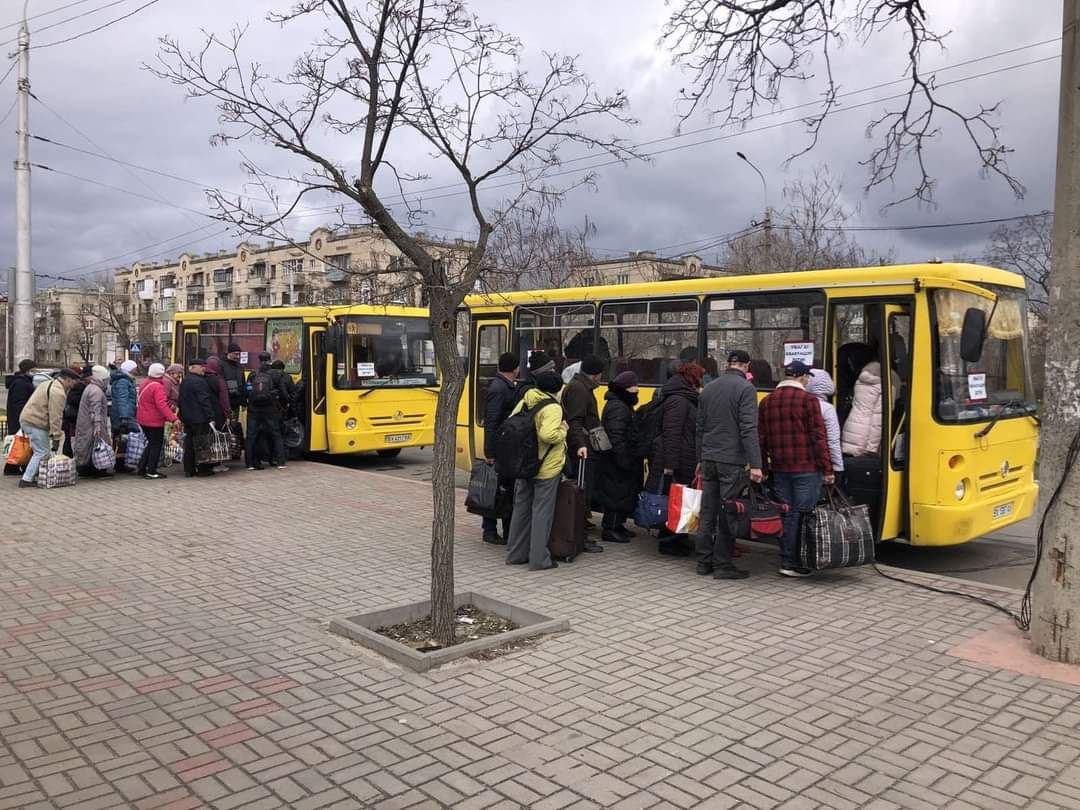
One day, my son and I went to the bomb shelter. There was a center where food was delivered. We learned that soon they will bring food and pick up people. The son said: “Mom, come on, quickly,” but I could no longer walk normally due to stress. He took me by the hand, and we made it and collected some things in backpacks. Of the documents, only I had a passport, and he had a pension card. I couldn’t even take our medical records when our house was under fire. Everything was in the apartment. I barely had time to unhook the dog and let it out into the yard so she would not die on a leash. The cat was not found: he was frightened of the explosions and hid in the firewood in the neighboring yard, so I could no longer get him out. Even in the house where we stayed, the dog came out only at night: she didn’t want to drink water or eat. She was scared and hid all the time.
When we drove out in small buses, shells fell behind us, and we heard it. Even the driver and the escort of the military swore all the time: “Damn it, we almost got hit again.”
When we got to Severodonetsk, we stopped for a while: something happened to the wheel. The driver got out and said: “Just a little more, we would have lost the wheel.” We were brought to the village of Mala Zolotarivka near Lysychansk. From there, we got on a diesel engine to Sloviansk, where we boarded an evacuation train.
Do you have somewhere to return to after the end of the war?
There is nowhere to return, as the house was destroyed. We also had a cemetery, and it burned for three days. The cemetery was located among the pines. Imagine pine trees burned for three days. Even the monuments were destroyed, and I have almost all my relatives buried there. Another cemetery behind the bypass road had tanks passed through it, and my grandfather, who served in World War II, was buried there. Uncle, my mother’s older brother, his wife, and some more relatives lie there. I want to go, at least put things in order. Otherwise — there is nowhere to go; everything is wrecked. Even if you come, there is no electricity, gas, or water. How to live? Where to live? Not in a dugout. It’s impossible to live there.
 The article was prepared by the Kharkiv Human Rights Protection Group with the support of the "
The article was prepared by the Kharkiv Human Rights Protection Group with the support of the "